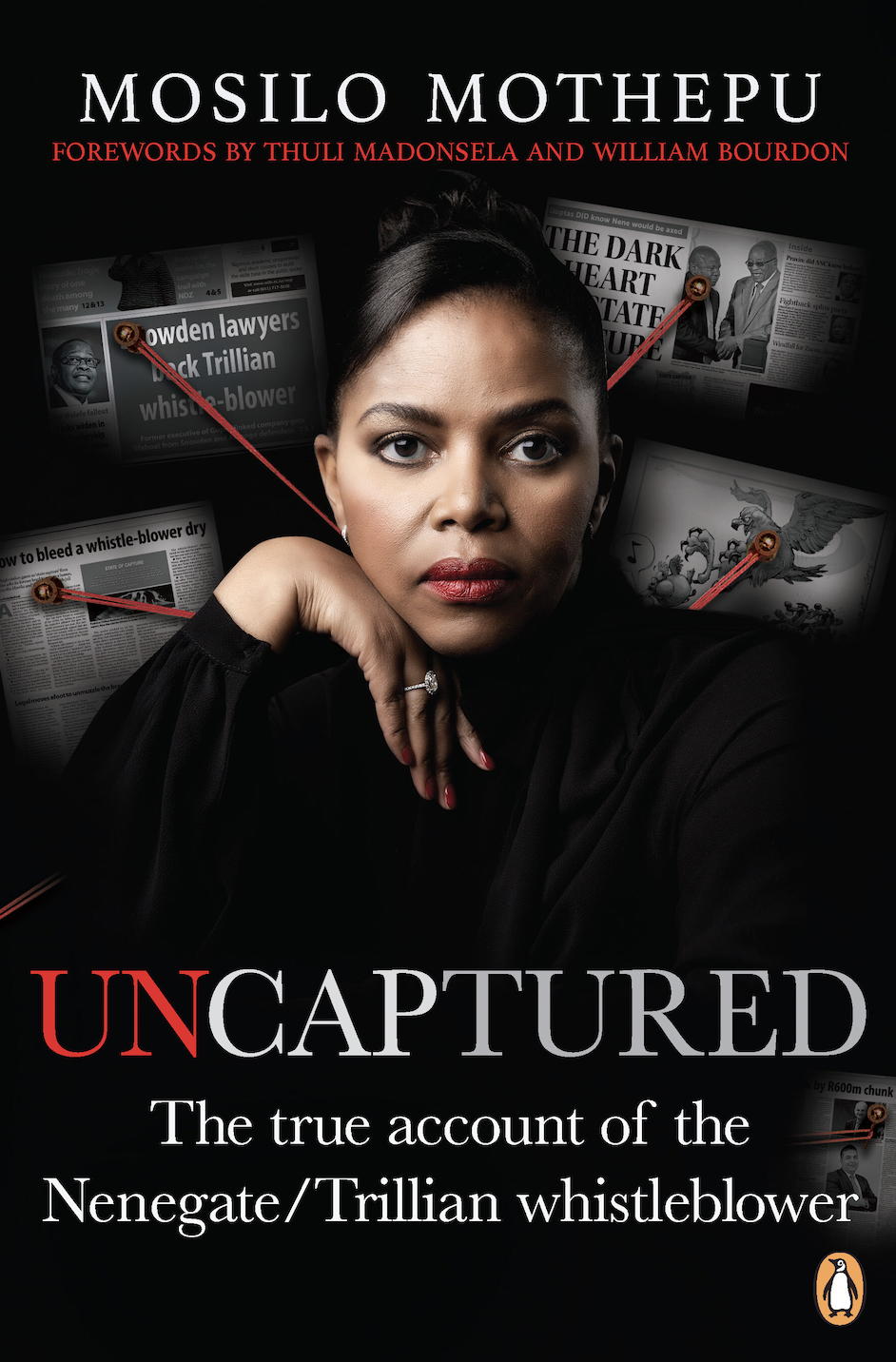When Mosilo Mothepu was appointed CEO of Trillian Financial Advisory, a subsidiary of Gupta-linked Trillian Capital Partners, in March 2016, the prospect of being at the helm of a black-owned financial consultancy was electrifying… Seven months later, she was being taken to court and called the Nenegate whistleblower.
One evening in January 2017, a glass of Chardonnay in hand, I decided to finally open Werksmans’ invoices. I had a legal bill of R1.3 million. I got the shock of my life. Trillian, with their seemingly bottomless pockets, had retained senior counsel for the CCMA matter. You can’t put a fly weight into a heavyweight fight, so I had to use senior counsel too. Even with the help
of the Legal Resources Centre, the fees were crippling. It was crushing – which was, of course,
the intention. I needed time to reflect on what I was doing and the huge price I was paying, financially and emotionally. I had already paid Werkmans R360 000 before even arguing my case. I didn’t have the cash, but when I reflected on my choices, I knew that I was prepared
to sell my house to continue the fight. It was clear that Trillian’s strategy was to bankrupt me with Stein Scop’s help. But their collusion would soon backfire. Jessica Bezuidenhout [journalist with the Mail & Guardian] asked me about the case. I told her that my bill had already reached R1.3 million and that it looked like they would indeed succeed in bankrupting me. Jessica told me that, at the time, proposed amendments to the Protected Disclosures Act, aimed at ensuring greater protection for whistle- blowers, were before the National Council of Provinces. Among other things, the amendments would ensure that if an employee was shown to have made a protected disclosure, they would not face related criminal and civil liability. But this would not apply to me, as I had resigned before they were gazetted. I needed help. I then approached
Freedom Under Law, a non-governmental organisation that takes on legal cases of national interest. They declined, saying my case was not of national interest. Then Jessica told me she had contact with Platform to Protect Whistleblowers in Africa (known by its French acronym
PPLAAF), and they might be able to help. I discovered that they are a non- governmental organisation that assists and defends whistleblowers, including litigating on their behalf. They had assisted Julian Assange and Edward Snowden, among others. In March, I met with Khadija Sharife, the Southern Africa coordinator of PPLAAF. I took Daniel Witz and Yolisa Pikie with me. Yoli and I had become friends, based largely on our shared experiences of being persecuted by a
powerful enemy. He once told me that when the Rogue Unit guys left SARS and were jobless, they made it their business to get up and get dressed and meet for coffee every day, because they knew what depression and isolation could do. I knew it too, because that’s where I was at this point. I was a shadow of my former self. I had stopped socialising, stopped picking up my friends’ calls, stopped cooking. Instead, I was in bed, crying. I told Khadija my story. ‘Those bastards!’ Khadija is a person who calls a spade a spade. ‘How dare they? How much do you owe?’ Initially, PPLAAF agreed to fund my legal costs up to R140 000, which I thought was quite helpful. Then, out of the blue, she came back to me with the news that they had reduced my bill to R700 000 – and PPLAAF would pay it! I can’t tell you how the weight lifted off my shoulders. I had resigned myself to the fact that I would have to sell my house to pay my legal fees. And now it seemed I wouldn’t have to.
ALSO SEE A WOMAN MAKES A PLAN BY MAYE MUSK
A Woman Makes a Plan by Maye Musk

